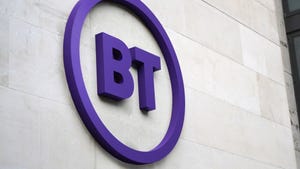2012 will be the do-or-die year for RCSe services and, quite possibly, for mobile operators’ chances to ensure that they secure their role in providing IP-based communications services to their subscribers.
February 27, 2012

By Pamela Clark-Dickson
 2012 will be the do-or-die year for RCSe services and, quite possibly, for mobile operators’ chances to ensure that they secure their role in providing IP-based communications services to their subscribers.
2012 will be the do-or-die year for RCSe services and, quite possibly, for mobile operators’ chances to ensure that they secure their role in providing IP-based communications services to their subscribers.
The group of five mobile operators’ mantra of ‘it’s just there and it just works’ for RCSe will only hold true if RCSe is indeed, available on multiple mobile devices and networks, and if it provides a satisfactory user experience. The G5 comprises Telefonica, Vodafone, Orange, Deutsche Telekom and Telecom Italia.
Over-the-top voice and IP messaging providers such as WhatsApp, Viber Media, Facebook Messenger and KakaoTalk have set the bar high for mobile operators in terms of user experience, and they have been able to capitalize on the long gestation of RCSe’s predecessor, Rich Communication Suite (RCS), which ultimately led to the G5’s RCSe breakaway manoeuvre. The ability of the OTTs to create and iterate services in Internet years rather than telecoms years has allowed them to get their services to market more quickly, to build substantial user bases, to enhance their services and, ultimately, to start eating away at operators’ voice and messaging revenues.
Wisely, the G5 and, by extension, the Spanish subsidiaries of Telefonica, Vodafone and Orange, have decided not to compete – at least initially – with OTT providers with regards to the services on offer. Instead, the operators will provide a set of basic communications services using RCSe, for which they will attempt to build adoption by focusing on their core strengths, namely, that they have a captive audience in their respective subscriber bases, and that they can enable interoperability of the service for subscribers on other networks.
RCS is the GSM Association’s Rich Communications Suite, a set of specifications aimed at providing a comprehensive range of interoperable mobile communications services beyond simple voice and SMS. RCSe is a variant of RCS developed by the group of five operators (Telefonica, Vodafone, Orange, Deutsche Telekom and Telecom Italia), which was announced at MWC 2011. It is a slimmed down version of the RCS specifications, comprising the following features: rich call, instant messaging, file transfer and capability discovery.
After all, it worked for SMS, right?
The problem is that RCSe may well be too little, and far too late. When SMS services first became available in the early 1990s, mobile subscribers did not have access to multiple communications channels. Ten short years later, however, there was just enough choice for mobile subscribers in terms of communications services – among other contributory factors – to negatively impact mobile operators’ MMS launches.
Mobile operators will face a similar situation with RCSe that they faced with MMS. RCSe-based services will compete in a crowded market, and operators will need to carefully position these services if they are to maximise adoption and use.
That means that, at a minimum, mobile operators will have to:
• Offer their basic RCSe-based services either for free or perceived ‘free’ as part of a bundle of services; and
• Ensure that they have a strategy for enabling RCSe-based services on as high a proportion of their legacy devices as possible, as well as new devices.
The failure of other high-profile, cross-operator initiatives in the past illustrates that it is by-no means certain that this particular high-profile, cross-operator initiative will succeed. And of the G5, at least two – Telefonica and Deutsche Telekom – are also pursuing a multi-pronged approach to offering IP-based communications services to their subscribers, via those of their operating companies that are partnering with OTT providers or that are developing their own services.
Read more about:
DiscussionYou May Also Like






.png?width=300&auto=webp&quality=80&disable=upscale)


_1.jpg?width=300&auto=webp&quality=80&disable=upscale)


.png?width=800&auto=webp&quality=80&disable=upscale)